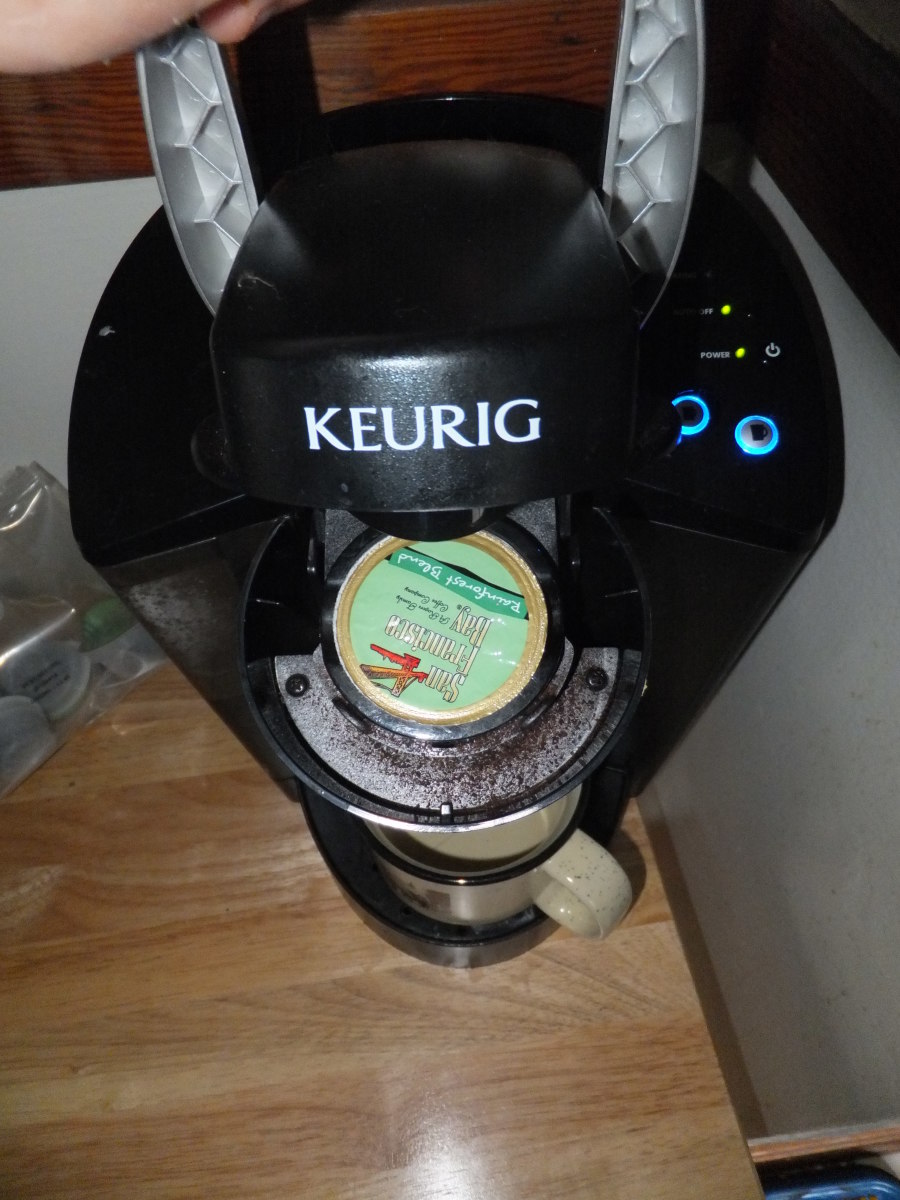How to Save Money on College

College is expensive. Everyone can agree, college is expensive. Even if you ignore the cost of tuition, there is still the cost of meal plans, food, dorms, books, supplies, and other necessities that can add up to a pretty painful amount. A lot of college freshmen make the same common mistakes when they first come to school. I should know, I made them myself. So for those of you students who will be starting college for the first time this year, or those students' parents who are new and terrified of this whole college experience, take into consideration some of these simple money-saving tips, and your extra college expenses will be reduced greatly.
Dormlife
Most freshmen, whether local or not, will decide to undertake the experience of living in a dorm. This is understandable. I don't blame any student for wanting to try dorm life, but if you live 15 minutes away from campus, save your money and commute your second year. I can't count how many times I was laying on my 6 inch thick mattress in my dorm, suddenly wishing I had my double bed and 500 thread count sheets from back home. I don't remember how many meals I would have rather eaten at home, rather than deal with the semi-decent food from the dining halls around campus.
If your first roommate experience didn't work out too well, but you plan on living in the dorms another year, don't spend twice the money to have your own double dorm to yourself. Have another roommate, and stay out of each others' lives. If you really want your own room to yourself, consider applying to become an RA.
At many universities becoming a Residence Assistant means that your room and board are completely free. You will also have a small but steady paycheck. This is one way to dramatically reduce the cost of living at college, and anyone can apply.
Some college dorms have laundry facilities that require you to use quarters to run the machines. This can get so expensive, so if you live close to campus you're crazy to do your laundry in your dorm! Go home and use your mother's washer and dryer! I had to have spent at least $50 on laundry alone in one year, as the dryers in my dorm completely sucked and required twice as much time to dry a small load of laundry as any average dryer should.
Don't Buy Brand New Everything!
If you do decide to go with dorms, or live on your own in general, don't buy brand new everything for it. If you already have a decent comforter, don't waste your money buying a brand new twin-sized comforter just for college. You'll find yourself over winter and summer breaks stuffing your new comforter in a closet because you don't know what to do with it anyway. Unless your dorms have special dorm-sized beds, don't buy new sheets if you already have the appropriate size. I haven't owned a single bed since I was about 13 years old, so now that I never plan on owning another single bed in my life, I find myself with 3 single-sized sheet sets that I bought for college and now have no use for. If you don't have the appropriate sized sheets, buy only one set, as it is all you will need, I promise.
If you already have a small lamp, for example, don't buy a brand new lamp for college. Who's going to be using the one at home? Most freshmen feel that everything in their dorm has to be brand new and color coordinated, but then later on they realize that their ordinary lamp back home works just as well as their brand new $30 pink lamp with a polka-dot shade.
If you plan to buy a refrigerator for your dorm, check the classifieds or craigslist first. What becomes more useless after you're done living in dorms than a thigh-high refrigerator with a freezer the size of a shoe box? Those refrigerators will range from at least $50 to well over $100, and most likely will end up sitting in a garage after 2 years, unused. Buy a used one from a former college student who made the mistake of buying a brand new one his/her freshman year instead.
Meal Plans
Meal plans are very expensive. At my college, they assume a meal to cost $7, even if you only decide to eat a bagel with cream cheese. When choosing a meal plan, think smaller, not larger. A college freshman living on campus will at most need 14 meals a week. If you think you're going to eat breakfast at the dining halls, trust me, you wont. If you are a very busy student and find yourself skipping meals to work on schoolwork, consider a block meal plan. This way, your skipped meals will not be wasted, and you can keep track of how many meals you have left throughout the semester.
Be smart and do your research. Find out if your unused meals carry over into the next semester. If they don't, and you don't use a meal on a certain day, go to the dining hall and use it! Even if you're just grabbing a sandwich that you plan to put in the fridge for a later time, buy it. Otherwise, you might as well flush $7 down the toilet. When I would skip a meal, I would go to a dining hall regardless and buy as many miniature milk cartons as I could fit onto that meal. I didn't buy milk from a store for months.
Don't go out to eat. I know that fast food restaurants at 3 A.M. are so tempting when you're up late studying, but think of how much you'll be hurting your wallet, not to mention your figure. They don't call it the freshmen fifteen for nothing!
Snacking Without Spending
When considering snacks to eat in-between meals, there are certain things I found that saved me a ton of money and trips to the store.
- Rather than buying juice boxes, jugs of juice, cans of pop, etc., spring for something like Koolaid instead. Beverages like Crystal Light and Koolaid have made it so easy. Buy a 2-quart pitcher, and the drink mixes that come in little tubs. No sugar needed, and one little tub makes a full 2-quarts. Not only will this save you some dough, but it'll be better for the environment too.
- Think Saltines. An enormous box of Saltine crackers costs between $1 and $2. Buy a box of Saltines and a jar of peanut butter, and you're snacking for at least a month.
- I lived off of bologna and cheese sandwiches throughout most of my sophmore year. It's inexpensive, filling, and could mean less food bought through meal plans.
- Don't buy big packs of bottles of water. Not only is it expensive, but it's not good for the environment. If you really care so much about having filtered water, buy a water-filtering pitcher to keep in your dorm. Buying new water filters will be much less expensive than wasting money on 20 bottles filled with BPA chemicals.
- Buy in bulk, and avoid brand names. You'll be so used to crappy food after eating at the dining halls, you won't even notice the difference anymore.
School Supplies
This is a great idea I decided to try out my second semester of my freshman year. Make a good friend who you wouldn't mind spending a lot of time with, and coordinate your schedules so that you are taking some of the same classes, so you can then share your books! This works even better if you can find someone in the same year with the same major, as you can make your schedules identical. This means you would be spending half the money on your books, saving you hundreds of dollars! Also, not only will you save money, you will have a study buddy for the entire semester.
Most classes rarely even use books, I can remember at least 4 classes that required me to buy this certain book and the only choice was to buy it brand new because it was a new edition, and after all of the fuss I never cracked the book once the entire semester and wasted $150. Professors will assign you to read a number of pages a night, but no one ever does, and most of the time you're reading material that isn't even going to be on the test. In most cases, all you need to do is listen and take notes and you will pass the tests.
A lot of people find that buying books online is a lot cheaper than going to the campus bookstore. I would advise that, but personally I worry that I'd end up buying it, and the first day of classes the professor would say "this book is on the syllabus but you don't have to buy it if you don't want to." I like to wait and see if it's absolutely mandatory first.
Don't buy a separate folder for every single class. This isn't middle school. You aren't required to have a green folder for your history class, or a 3/4 inch orange binder for your math class, or a 1.357 inch blue binder with 2 inside pockets and purple page protectors for your English class. Most classes give you a syllabus on the first day, and by the end of the semester you might have accumulated 4 sheets of paper from that class overall. Buy an accordion folder with 7 or so dividers, label each one for each class, and use that one folder until it literally crawls out of your backpack and into the garbage all by itself.
I know it's fun to have a bon fire at the end of the year and use old class notebooks instead of wood, but save your notebooks. I am a crazy note taker, and I still have only used maybe 20 pages at most out of my notebooks for each class.
Traveling
Most campuses offer a bus system that is free for students with ID, and will do loops around campus every 10 or so minutes. If you don't want to walk the mile across campus to your class, take the bus. Don't expect to be able to drive to every class. Don't even bring a car if you live close enough to the school. Most schools will require you to pay money to park on campus and as you will be an underclassman, you will get the crappiest parking lot available and will be walking regardless. Bring a bicycle to school if it's too long of a distance to walk, but too short to bother driving.
Helpful Purchases That Won't Waste Your Money
Here is a small list of things that you definitely should consider buying, as I don't know what I would have done without them:
- A small drying rack. As I said before, the dryers at the dorm were awful, and 9 times out of 10 I would be left with at least 4 items of clothing that were still too damp to put away. Pick out things that don't need to be dried necessarily, and hang-dry them instead. This will mean less clothes that need to be dried, so the dryer should dry everything faster for less money. You can also use your drying rack to hang your bath towel so that you can reuse it and not have to worry about it smelling like mildew. Buy only two towels, and use each one for a week.
- A sponge with a handle attached that can be filled up with dish soap. Some dorms only offer bathroom sinks to wash dishes in. This means that you will most likely not be able to fill up the sink with water and soap. I found this item to be very helpful, as well as cost effective. I found one at a dollar store, and filled the handle half-way with dish soap. The soap will automatically dispense through the sponge, so you won't need to rely on a sink full of soapy water. I never had to refill the handle that entire year.
- An umbrella. This is a huge must-have. Nothing sucks worse than sitting in a freezing lecture hall completely drenched from head to toe because a random storm blew in during your previous class. I have a small enough one that I can carry it in my backpack and am always prepared.
- A hat, scarf, and gloves. Chances are your college will have a lot of large buildings in close proximity to one another. This can create wind tunnels which make for a colder, windier and more frigid walk to class.
- Boots. I have always thought boots looked lame, but I couldn't imagine how I survived without them before I started going to college.
- A small sewing kit. I became the girl who sewed the buttons back on all of the boys shorts on my floor. I have had other times when my old bags have ripped and needed emergency repair. Even if you don't think you'll need it, someone will.
- Duct tape. For those of you who don't know how to sew. This also came in handy for fixing my accordion folder, and picking up hair off my area rug. It's random uses like that where duct tape comes to the rescue in a time of panic.
- A change bowl. This definitely doesn't have to be purchased, but I think it's a good idea to have one regardless. My change cup was a drink cozy that was being passed out for free at some event on campus. As you walk around school, pick up change you find and start saving all your loose change in your change bowl. At the end of the semester, you'll be surprised how much money you'll end up with.
Think Before You Spend
The most important thing is just to be aware of your wallet. Take advice from upperclassmen on anything and everything, and don't blow all of your money within the first month. College is expensive, but with help it doesn't have to be.








